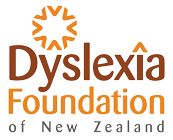In 2007, the Government made a commitment to fund a Ministry of Education work programme to address the needs of dyslexic students in the classroom. Despite ongoing engagement with the Ministry of Education, this funding has still not arrived.
The Foundation has been concerned at growing pressure placed on teachers through under-funding on a number of education fronts, and we are also concerned that the dyslexia agenda is not being advanced in a meaningful way. Since May 2008, the Ministry of Education has been hard at work on a major literacy policy. But, while the Foundation applauds this work and the significant research and thinking that lies behind it, the literacy focus makes it very limited in scope and thus ineffective for dyslexic students – much like showing up at a car crash with a box of sticking plasters.
This is because dyslexia is an alternative way of thinking, not a literacy deficit. Standard literacy (and numeracy) interventions do not solve the problem – and could in fact make it worse, cementing students’ feelings of failure. Dyslexia impacts across a range of vectors, from literacy and numeracy right through to time management and information processing speed. In short, the universal traits of dyslexia transcend literacy alone. And it has potentially wide-ranging social consequences, through effects on self-esteem.
In terms of the literacy policy work being undertaken by the Ministry, it also appears to be set against a long timeframe – which seems to make it unlikely that the dyslexia-specific funding is on the cards for the near future. In fact, the Government seems to have conveniently forgotten its funding commitment at this time.
We also know that the Government’s Schools Plus programme will be hard pushed to make a difference. Schools Plus, designed to reach about 14,000 young people (25 percent of school leavers) who exit school without even a Level 1 qualification, is fundamentally flawed. It’s too little, too late – the ambulance at the bottom of the cliff for underperforming school leavers who are already disengaged and disenfranchised, and have had years of inadequate support.
To us it’s a simple choice – help 70,000 school children with dyslexia and make a real difference all through their school lives, or leave it to the last minute with 14,000 early school leavers who can’t wait to get out the school gate.
Despite some of the challenges, the Foundation continues to advocate for Government funding for dyslexia-specific professional development for teachers and trainees, and for appropriate dyslexia assessment and intervention tools and strategies to be made available to schools.
In the meantime, we are helping schools take their own action on dyslexia with our 4D | For Dyslexia programme. Click here for MORE INFORMATION.
|
